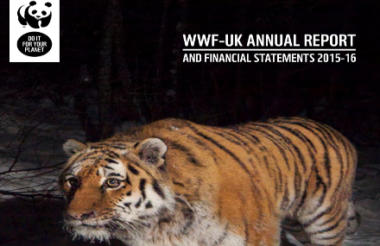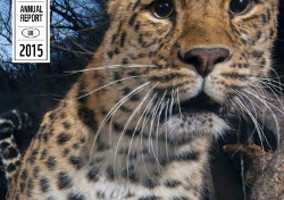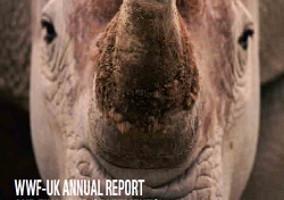WWF UK has made 17 redundancies as part of its restructuring its fundraising and communications teams, and cut back spending on fundraising by over £1m according to its latest set of accounts.
The organisation's 2015/16 accounts for the year ending 30 June, show that WWF UK paid £169,000 “relating to redundancy costs arising from the review and reorganisation of the communications and fundraising department”. The accounts show that a further £36,000 is still yet to be paid out to those made redundant.
According to a spokeswoman from WWF UK, 17 staff in the organisation’s fundraising and communications teams were made redundant in the last financial year. Of those 17, she said that 10 individuals “opted for voluntary redundancy”, while a further two left early in the current financial year.
No directors were made redundant or left the organisation as part of the restructure.
Total “reorganisation” costs for the organisation are listed as being £374,000, compared to just £35,000 the year before.
Alison Lucas, executive director of communications and fundraising at WWF UK, said: “In ensuring that we are best placed to tackle these global conservation challenges we have restructured our communications and fundraising department during the early part of 2016.
“This has allowed us to better integrate teams across the department, enabling them to work more effectively together and to better align our resources and skills to our conservation priorities. We believe this new structure will help us achieve our ambitious goals.”
The average number of staff at the organisation in the previous financial year was 332, down from 339 in 2015. The organisation spent over £14.7m on “staff costs”, including wages and salaries, social security and pension costs. The redundancy payments are accounted for in the overall staff costs.
The charity had 20 employees at the organisation earning £60,000 or more in the last financial year, one less than in 2015.
The highest paid employee at the company was former chief executive David Nussbaum. Nussbaum stepped down from the organisation in January, having been at the organisation for nine years. He has been replaced at the organisation by Tanya Steele.
Total income increased by 13 per cent
The total income of WWF UK increased in the last financial year by increased by 13 per cent from the previous year, to over £71m. Fundraising activities accounted for £60.2m of that, an increase from the previous year of over £5.3m, or 8.8 per cent.
During the year WWF UK received the second tranche of a large legacy, worth £4.8m.
While WWF UK’s income from membership and individual donations fell slightly in the last financial, its total legacy income against the year before increased by over £6.9m to over £16m in 2015/16.
The charity’s total expenditure also saw an increase, albeit a smaller one in terms of percentage compared to its growth. WWF UK spent over £63m in the last financial year, an increase of just under 3 per cent from the previous year’s total spending of £61.1m.
The accounts showed that in the last financial year, WWF UK cut back on its fundraising expenditure by over £1.5m, spending £13.3m in 2015/16, compared to £14.9m in 2014/15.
The organisation spent £49.3m on charitable activities, including over £37m worth of restricted and unrestricted funds on grants and project costs.
WWF UK’s accounts also showed that it received over £2.4m in “proceeds” from the People’s Postcode Lottery.
Related Articles












